Online CDL Permit Practice Tests
state New Jersey
Ace Your New Jersey CDL Exam: Free Practice Tests
Don't waste your time - start practicing with free online tests today
Our free online CDL practice tests cover all the essential topics, including General Knowledge, Air Brakes, and Combination Vehicles. Practice at your own pace, anytime, anywhere, to build your confidence and ensure you’re fully prepared for your CDL exam.
General Knowledge Test
Air Brakes
Test
Combination Vehicle Test
Step-by-Step Guide to Getting a CDL in New Jersey
Step 1: Determine Your CDL Class and Endorsements
Understanding the appropriate CDL class and necessary endorsements is crucial:
CDL Classes in New Jersey:
- Class A: Required for any combination of vehicles with a Gross Combination Weight Rating (GCWR) or gross combination weight of 26,001 pounds or more, inclusive of a towed unit(s) with a Gross Vehicle Weight Rating (GVWR) or gross vehicle weight of more than 10,000 pounds.
- Class B: Pertains to any single vehicle with a GVWR of 26,001 pounds or more, or any such vehicle towing another vehicle not exceeding 10,000 pounds GVWR.
- Class C: Applies to any vehicle designed to transport 16 or more passengers, including the driver, or any vehicle used in the transportation of hazardous materials requiring placarding.
CDL Endorsements in New Jersey:
- Hazardous Materials (H) Endorsement: Allows the transportation of hazardous materials requiring placarding. To obtain this endorsement, you must pass the Hazardous Materials knowledge test and complete a Transportation Security Administration (TSA) background check, including fingerprinting.
- Tank Vehicle (N) Endorsement: Permits the operation of vehicles designed to transport liquids or gases in bulk tanks.
- Passenger (P) Endorsement: Authorizes the operation of vehicles carrying passengers.
- School Bus (S) Endorsement: Allows the operation of school buses for transporting pupils to and from school or related functions. Obtaining this endorsement requires passing both the Passenger (P) and School Bus (S) knowledge tests, holding a Commercial Learner’s Permit (CLP) with these endorsements for at least 14 days, and passing a skills test in a school bus of the same vehicle group.
Determine the specific CDL class and endorsements applicable to your intended commercial driving activities to ensure compliance with New Jersey regulations.
Step 2: Obtain a Commercial Learner's Permit (CLP):
Before acquiring a CDL, you must obtain a CLP:
Eligibility Requirements:
- Age: You must be at least 18 years old to apply for a CLP in New Jersey. However, to operate in interstate commerce or obtain certain endorsements like Passenger (P) or School Bus (S), you must be at least 21 years old.
- Driver’s License: Possess a valid New Jersey Class D (non-commercial) driver’s license.
- Medical Certification: Provide a valid Medical Examiner’s Certificate (MEC) to demonstrate you meet the physical qualifications required for commercial driving.
Application Process:
- Prepare Required Documents:
- Proof of Identity and Legal Presence: Present documents such as a certified birth certificate, valid U.S. passport, or permanent resident card.
- Social Security Number (SSN): Provide your Social Security card or a W-2 form displaying your full SSN.
- Proof of New Jersey Residency: Submit documents verifying your New Jersey residential address, such as utility bills, lease agreements, or bank statements.
- Study for Knowledge Tests: Review the New Jersey Commercial Driver License Manual to prepare for the required knowledge tests.
- Obtain an Examination Test Receipt: Visit a New Jersey Motor Vehicle Commission (MVC) agency to obtain an examination test receipt, which costs $125.
- Pass Required Knowledge Tests: Successfully complete written tests covering general commercial vehicle operation and any additional endorsements you seek (e.g., air brakes, passenger transport).
- Apply for the CLP: After passing the knowledge tests, you will be issued a CLP, valid for 180 days.
- Prepare Required Documents:
Step 3: Complete Entry-Level Driver Training (ELDT):
As of February 7, 2022, federal regulations require certain Commercial Driver License (CDL) applicants to complete Entry-Level Driver Training (ELDT) before taking the CDL skills test or the Hazardous Materials (H) endorsement test. This training ensures that new commercial drivers meet minimum safety and operational standards.
Who Needs ELDT?
ELDT is mandatory for individuals who are:
- Applying for a Class A or Class B CDL for the first time.
- Upgrading from a Class B to a Class A CDL.
- Obtaining a Passenger (P), School Bus (S), or Hazardous Materials (H) endorsement for the first time.
ELDT Curriculum Components
The ELDT program includes two key components:
Theory Instruction:
- Covers basic operation, safe driving procedures, vehicle inspections, and compliance with federal regulations.
- There is no minimum number of required hours, but applicants must score at least 80% on knowledge assessments to pass.
Behind-the-Wheel (BTW) Training:
- Practical training conducted on a closed range and public roads under instructor supervision.
- Trainees must demonstrate proficiency in maneuvers, turns, braking, backing, and highway driving.
- There is no required minimum number of hours, but mastery of skills is required.
Choosing an ELDT Provider
- ELDT must be completed through a training provider registered with the FMCSA’s Training Provider Registry (TPR).
- The training provider submits electronic proof of completion to the federal database, which is verified before you can take your CDL skills test or Hazardous Materials knowledge test.
By completing ELDT, drivers gain essential knowledge and skills for safely operating commercial vehicles, ensuring compliance with federal and New Jersey state regulations.
Step 4: Practice with Your CLP:
After obtaining your Commercial Learner’s Permit (CLP) in New Jersey, you must practice operating a commercial vehicle under the supervision of a qualified CDL holder. This practice period helps develop the skills necessary to pass the CDL skills test and safely operate a Commercial Motor Vehicle (CMV) in real-world conditions.
CLP Driving Rules in New Jersey
While holding a CLP, you must follow specific rules:
- You may only drive a commercial vehicle under direct supervision.
- The supervising driver must:
- Be at least 21 years old.
- Hold a valid CDL for the same class and type of vehicle.
- Have any necessary endorsements for the vehicle and cargo.
- Remain seated in the front passenger seat while you are driving.
What to Focus on During Practice
During the CLP practice period, you should focus on mastering skills required for the CDL skills test, including:
- Pre-trip vehicle inspection – checking for safety and mechanical issues.
- Basic vehicle control maneuvers, such as straight-line backing, offset backing, and parallel parking.
- Driving in traffic, including intersections, lane changes, merging onto highways, and following road signs.
Additional Practice Recommendations
- Train in the same class and type of vehicle you will use for the CDL skills test.
- If you take the skills test in a vehicle with automatic transmission, your CDL will include a restriction preventing you from driving manual transmission CMVs.
- If your vehicle lacks air brakes, you may receive a restriction that prevents you from driving air brake-equipped vehicles.
CLP Holding Period
In New Jersey, you must hold your CLP for at least 14 days before scheduling your CDL skills test. The permit is valid for 180 days and can be renewed once within a two-year period.
By practicing consistently and under proper supervision, you will be well-prepared for the CDL skills test and real-world commercial driving.
Step 5: Schedule and Pass the CDL Skills Test:
After holding your Commercial Learner’s Permit (CLP) for at least 14 days and completing the required Entry-Level Driver Training (ELDT), you can schedule and take the CDL skills test in New Jersey. This test evaluates your ability to safely operate a commercial vehicle and consists of three parts:
CDL Skills Test Components
Pre-Trip Vehicle Inspection
- You must inspect your vehicle and explain to the examiner what you are checking and why.
- Demonstrates knowledge of vehicle safety and readiness.
Basic Vehicle Control
- Involves maneuvers like backing, turning, and parking within a controlled environment.
- Tests your ability to handle the vehicle precisely.
On-Road Driving
- You will drive in real-world traffic conditions.
- You will be assessed on your ability to handle highways, city streets, lane changes, and intersections safely.
Scheduling the Skills Test
Make an Appointment: You must schedule the test in advance through the New Jersey Motor Vehicle Commission (MVC). Ensure that you have held your CLP for at least 14 days before booking.
Provide Your Own Vehicle: You must bring a commercial vehicle that matches the class and endorsements you are testing for.
Vehicle Requirements:
- A valid inspection sticker.
- Valid registration and insurance.
- Clearly visible GVWR placards (to confirm vehicle weight rating).
- No cargo should be inside the vehicle.
Bring a Qualified CDL Driver: You must have a licensed driver with a valid CDL for the same type of vehicle.
What to Bring on Test Day
- Your valid CLP.
- Examination test receipt.
- A Medical Examiner’s Certificate (if required).
After the CDL Skills Test
If You Pass:
- You will receive an authorization slip to take to the Licensing Center to obtain your Commercial Driver License (CDL).
If You Fail:
- You must wait at least 14 days before retaking the failed portion of the test.
- Multiple failures may require additional training or restrictions before retesting.
Step 6: Obtain Your CDL:
Once you pass the CDL skills test, you must visit a New Jersey MVC Licensing Center to complete the final steps.
What to Bring to Obtain Your CDL
- Valid New Jersey driver’s license.
- Commercial Learner’s Permit (CLP).
- Medical Examiner’s Certificate (if required).
- Proof of identity, residency, and Social Security number.
- Payment for CDL issuance fees (varies based on class and endorsements).
CDL Issuance and Restrictions
Once issued, your CDL will include:
- CDL Class (A, B, or C).
- Endorsements (such as Hazmat, Passenger, or School Bus).
- Restrictions, if applicable (e.g., automatic transmission restriction if tested in an automatic vehicle).
Maintaining Your CDL
CDL holders in New Jersey must:
- Renew their CDL before it expires.
- Keep their medical certification up to date to avoid a CDL downgrade.
- Report any changes (such as a new address) within 30 days.
- Comply with all state and federal regulations to maintain their CDL privileges.
By following these steps, you will successfully obtain and maintain your CDL in New Jersey, allowing you to legally operate commercial vehicles within the state and across the U.S.
Additional Considerations:
Medical Certification Requirements
- CDL holders must maintain a valid Medical Examiner’s Certificate (DOT medical card) and submit it to the New Jersey Motor Vehicle Commission (MVC).
- Drivers must also self-certify whether they operate in interstate or intrastate commerce.
- Failure to maintain a valid medical certification may result in CDL suspension or downgrade.
Hazardous Materials Endorsement (HME)
- If applying for or renewing a Hazardous Materials (H) endorsement, you must:
- Pass the Hazmat knowledge test.
- Undergo a TSA security threat assessment, including fingerprinting and a background check.
- Renew the background check every five years to keep the endorsement valid.
Military Skills Test Waiver
- New Jersey offers a Military Skills Test Waiver Program for service members with recent experience operating military vehicles.
- If eligible, the waiver allows you to skip the CDL skills test, but you must still pass all required knowledge tests.
Driving Record and CDL Violations
- CDL holders are held to higher safety standards than regular drivers.
- Violations such as DUI, reckless driving, or using a CMV to commit a felony can result in CDL suspension, revocation, or disqualification.
- Even violations committed in a personal vehicle can impact CDL status.
CDL Renewal and Expiration
- New Jersey CDLs are typically valid for four years.
- CDL holders must renew their license before expiration and ensure that medical certification, endorsements, and background checks remain valid.
- Failure to renew on time may result in penalties or the need to retake tests.
Vehicle Restrictions
- If you take the CDL skills test in a vehicle with an automatic transmission, your CDL will be restricted to automatic CMVs only.
- If you test in a vehicle without air brakes, you will receive a restriction prohibiting you from operating air brake-equipped CMVs.
Notification Requirements
- CDL holders in New Jersey must notify the MVC within 30 days of:
- Address changes.
- Medical certification updates.
- Any out-of-state traffic convictions or disqualifying offenses.
By following New Jersey CDL regulations and staying compliant with state and federal laws, commercial drivers can maintain their CDL privileges and legally operate commercial vehicles.
Frequently asked questions
Who needs a Commercial Driver License (CDL) in New Jersey?
Anyone operating a vehicle classified under Class A, B, or C commercial vehicle categories needs a CDL. This includes vehicles over 26,001 lbs, those carrying hazardous materials, or those designed to transport 16 or more passengers, including the driver.
What are the age requirements to get a CDL in New Jersey?
The minimum age to obtain a CDL for intrastate driving, meaning within New Jersey only, is 18 years old. To drive interstate, meaning across state lines, or to apply for endorsements such as Hazardous Materials (H), Passenger (P), or School Bus (S), the applicant must be at least 21 years old.
What documents are required to apply for a CDL in New Jersey?
Applicants must present a valid New Jersey driver’s license, proof of identity and lawful presence, such as a passport or birth certificate, and verification of their Social Security Number. Proof of New Jersey residency, such as a utility bill or lease agreement, is also required.
How do I get a Commercial Learner’s Permit (CLP) in New Jersey?
To obtain a CLP, you must first pass the required knowledge tests based on the CDL class and endorsements you are applying for. You will need to provide all necessary documents, including a valid New Jersey driver’s license and proof of identity. After passing the tests and paying the required fees, you will receive a CLP, which must be held for at least 14 days before taking the CDL skills test.
Do I need to complete Entry-Level Driver Training (ELDT)?
Yes, ELDT is mandatory for individuals obtaining a Class A or B CDL for the first time, upgrading from a Class B to a Class A CDL, or applying for a Passenger (P), School Bus (S), or Hazardous Materials (H) endorsement for the first time. Training must be completed through an FMCSA-approved provider before taking the CDL skills or hazardous materials test.
What does the CDL skills test involve?
The CDL skills test consists of three parts: a pre-trip vehicle inspection, a basic vehicle control test, and an on-road driving test. During the pre-trip inspection, you must demonstrate knowledge of vehicle safety by identifying and explaining key components. The basic vehicle control test assesses your ability to perform maneuvers like backing and parking. The on-road test evaluates your ability to safely operate a commercial vehicle in traffic, including turns, lane changes, and highway driving.
Can I use any vehicle to take the CDL skills test?
No, you must take the test in a vehicle that matches the CDL class you are applying for. If you take the test in a vehicle with an automatic transmission, your CDL will have a restriction limiting you to automatic vehicles. If you test in a vehicle without air brakes, you will be restricted from operating commercial vehicles with air brakes.
How long is the Commercial Learner’s Permit (CLP) valid?
The CLP is valid for 180 days and can be renewed once within a two-year period. If the CLP expires before you pass the CDL skills test, you will need to apply for a new permit and retake the required knowledge tests.
What happens if I fail the CDL skills test?
If you fail any portion of the CDL skills test, you must wait at least 14 days before retaking it. You may only need to retake the failed section rather than the entire test, depending on the testing center’s policies.
What medical requirements must be met to obtain a CDL?
CDL applicants must provide a valid Medical Examiner’s Certificate (DOT medical card) from a certified medical examiner. They must also complete a self-certification form declaring whether they operate in interstate or intrastate commerce. Failing to maintain a valid medical certification may result in CDL suspension or downgrade.
How do I get a Hazardous Materials (H) endorsement?
To obtain a Hazardous Materials (H) endorsement, you must pass the hazmat knowledge test and undergo a TSA security threat assessment, which includes fingerprinting and a background check. The background check must be renewed every five years to maintain the endorsement.
What should I do if I move to a new address?
CDL holders must notify the New Jersey MVC of an address change within 30 days to ensure their license remains valid. Failure to update personal information may result in administrative penalties.
Where can I find official CDL information for New Jersey?
You can find official CDL information for New Jersey on the New Jersey Motor Vehicle Commission (MVC) website. The MVC provides details on CDL requirements, the application process, testing locations, and regulations. The official New Jersey MVC website is www.njmvc.gov.



